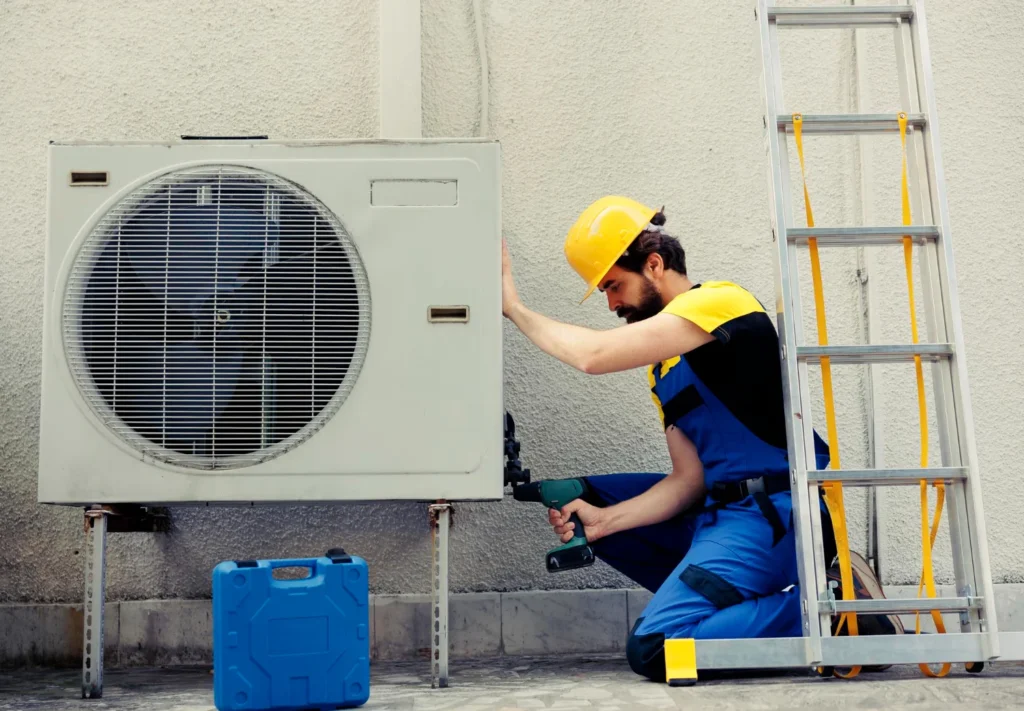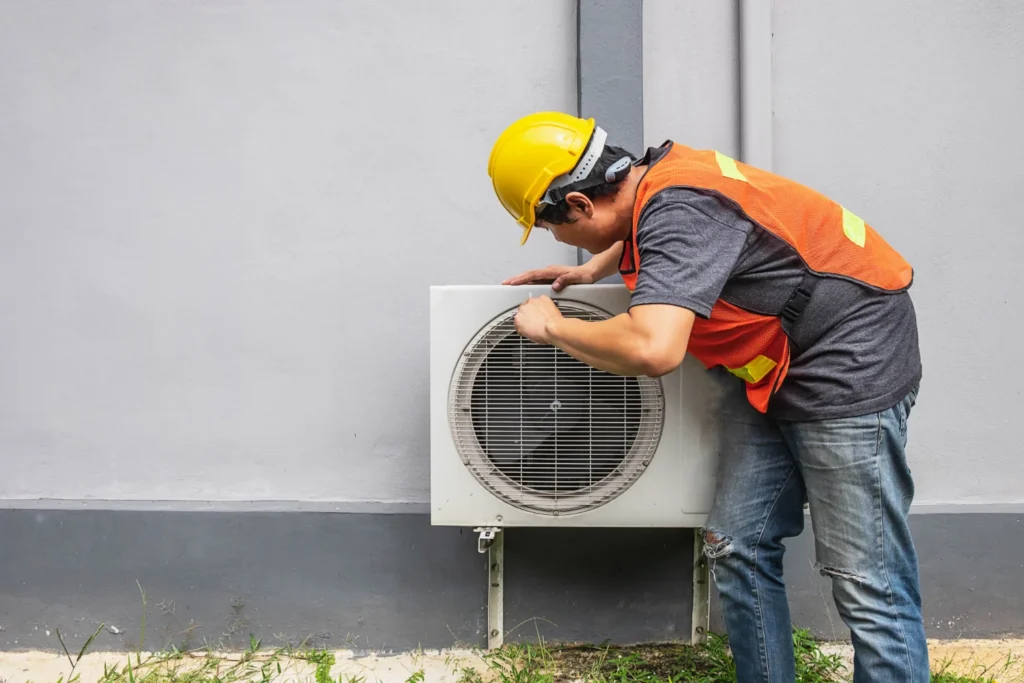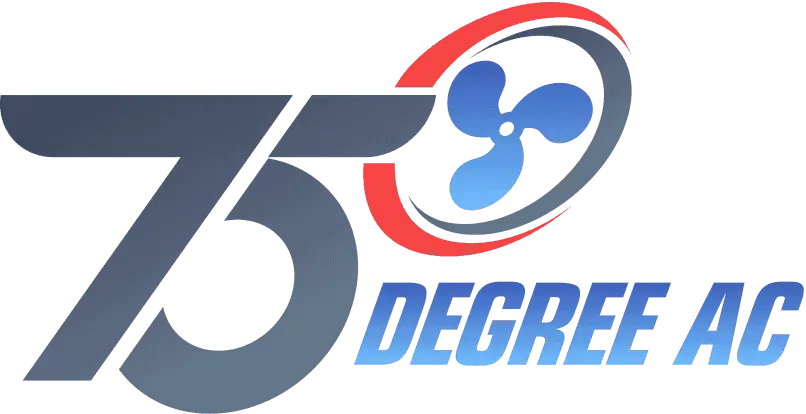Air conditioning systems are vital for comfort during hot weather, but they can be a sign of trouble when they start cycling on and off frequently. This phenomenon, known as short cycling, not only disrupts your comfort but can also significantly increase your energy bills and put undue stress on your air conditioning unit. Understanding the causes and solutions of AC short cycling is crucial for maintaining an efficient and long-lasting HVAC system.
What Is Short-Cycling?
AC Short cycling is when your air conditioner turns on and off more frequently than usual without adequately cooling your home. This erratic behavior can lead to increased wear and tear on the system, higher energy consumption, and reduced overall lifespan of the unit. Identifying and resolving short cycling promptly is essential to ensure efficient operation.
What Causes an AC to Short-Cycle?

Understanding why your air conditioner short-cycling is essential for effectively diagnosing and fixing the problem. Several common issues can cause this disruptive behavior, ranging from simple maintenance oversights to more complex mechanical failures.
Dirty Air Filter
A dirty air filter is one of the most common causes of AC short cycling. The air filter’s primary function is to clean the air circulating through your heating and cooling system, trapping dust, pollen, and other particulates. When the filter becomes clogged with debris, it restricts the airflow to the air conditioner’s evaporator coil. This restricted airflow can cause the coil to freeze, leading the unit to shut down prematurely to prevent damage. Once the coil thaws, the unit restarts, creating a cycle of frequent on and off that can be harmful over time.
Regularly checking, replacing, or cleaning the air filter can resolve this issue. During peak usage seasons, checking your air filters every month and replacing them at least every three months is typically recommended.
Low Refrigerant
Refrigerant is the lifeblood of your air conditioning system. It is the substance that absorbs heat from the indoor air and releases it outside, effectively cooling your home. If your system has low refrigerant levels, usually due to leaks in the lines, it cannot remove heat effectively. This inefficiency causes the compressor to work harder and can lead to the system overheating and shutting down prematurely— ac short cycling.
Detecting and fixing refrigerant leaks is not a DIY job. Professional tools and expertise are required to ensure the system is repaired, the refrigerant is charged correctly, and the system complies with environmental regulations. If you suspect your AC is low on refrigerant, you must call a qualified HVAC technician who can diagnose and repair the issue.
Compressor Failed
The compressor is arguably the most critical component of your air conditioning system. It compresses the refrigerant and circulates it through the condenser and evaporator coils. A malfunctioning compressor can lead to ac short cycling. Compressors can fail for various reasons, including electrical issues (such as a failed capacitor), wear and tear from age, or continuous operation under strain from other failing components (like a dirty air filter or low refrigerant levels).
Compressor problems are severe and often require significant repair or complete unit replacement. Because of the complexity and cost involved, it’s crucial to have a reliable and experienced HVAC professional assess whether the compressor is indeed the problem and discuss the most cost-effective solutions. Depending on the age and condition of the AC unit, replacing the entire system might sometimes be more economical than replacing the compressor alone.
Incorrectly Sized Unit
An air conditioner needs to be correctly sized for your home, which can lead to various problems, including ac short cycling. An oversized unit will cool your home quickly but not run long enough to dehumidify the air effectively, leading to a damp feeling and mold growth. This rapid cooling also means the thermostat will shut the AC off before it can complete a proper cooling cycle, causing it to start and stop more frequently than it should.
Conversely, an undersized unit will need help to cool your home adequately, running continuously and turning off and on in short bursts to meet the cooling demand. This leads to increased wear and tear on the system, inefficient energy use, and higher utility bills.
To resolve issues with an incorrectly sized AC unit, it is often necessary to consult with a professional HVAC contractor who can perform a detailed load calculation. This calculation considers various factors, such as the size of your home, climate, window placement, and insulation levels, to determine the ideal AC size for your needs.
Thermostat Problem
Thermostat issues can also cause your air conditioner to short cycle. If the thermostat is improperly calibrated or malfunctioning, it may sense the temperature inaccurately and turn the AC on and off erratically. Additionally, suppose a thermostat is placed in a poor location—near a window where it gets direct sunlight, near kitchen appliances, or in a hallway where it doesn’t accurately detect the average temperature of the living spaces. In that case, it can lead to frequent cycling.
To fix thermostat-related ac short cycling:
- Ensure it is correctly calibrated and functioning.
- Consider replacing an older thermostat with a new, programmable model with better accuracy and efficiency.
- Ensure the thermostat is ideally located away from any heat sources or cold drafts affecting its readings.
- Iced Evaporator Coil
Another common cause of short cycling is an iced evaporator coil. The coil, which contains refrigerant, absorbs heat from the indoor air. However, suppose a dirty filter restricts the airflow or insufficient refrigerant. In that case, the coil’s temperature can drop below freezing, causing ice to form on its surface. Once iced, the AC will stop cooling effectively, and the system may shut down. After the ice melts, the cycle may start again.
Preventing this involves regular maintenance, such as replacing the air filter and ensuring adequate refrigerant. If icing continues, it’s essential to have a professional technician check the system for other potential issues like malfunctioning components or damage that could be causing inadequate airflow or refrigerant leaks.
Leaking Air Ducts
Leaking ducts can also cause AC short cycling. If the ductwork in your home has leaks, holes, or poor connections, cooled air may escape before it ever reaches your living spaces. This loss of cooled air makes the AC run longer to achieve the thermostat setpoint, increasing the likelihood of short cycling as the unit struggles to maintain a consistent temperature.
Addressing duct leaks typically involves hiring a professional to inspect and seal the ductwork. This process helps prevent short cycling and significantly improves your air conditioning system’s overall efficiency and performance, leading to better cooling and lower energy costs.
How To Fix Short Cycling Air Conditioner

Fixing a short-cycling air conditioner involves a series of steps to identify and rectify the underlying issues. Here are some practical measures you can take to alleviate or solve the problem of short cycling:
Check your air filter
One of the most straightforward fixes for AC short cycling is to check and replace your air filter. A clogged air filter restricts airflow, leading to many problems, including overheating the AC unit. To check your air filter:
- Turn off the AC system.
- Locate the air filter housing, which is typically situated in the return air duct next to the air handler.
- Remove the filter and examine it against the light. If you cannot see the light passing through, it’s time to replace it.
- Insert a new filter with the correct size and airflow direction, usually indicated by arrows on the filter’s frame.
- Make it a routine to check your air filter every month, especially during peak usage times, and replace it as necessary.
Check your thermostat placement.
Improper thermostat placement can frequently cause your air conditioner to cycle on and off:
- Ensure the thermostat is away from all heat sources, including windows that receive direct sunlight, kitchen appliances, and lamps, as these can cause false readings.
- It should also be away from drafty areas, which might falsely signal that the air in the home is more relaxed, leading to premature cycling.
- You are moving the thermostat to a more central location within your home or to a place that represents average room temperatures.
Check your air conditioner’s refrigerant levels.
Low refrigerant levels can lead to insufficient cooling and short cycling:
- This is typically a task for a professional HVAC technician, as it involves checking for leaks, repairing them, and refilling the refrigerant to manufacturer-specified levels.
- Regular servicing can help ensure your system is filled with the correct refrigerant and free from leaks and other mechanical issues.
Replace the low-pressure control switch.
The low-pressure control switch is a safety device that monitors the refrigerant pressure. If the pressure drops too low, the switch will shut off the compressor to prevent damage. If this switch is faulty, it may cause the air conditioner to cycle on and off unnecessarily. Replacing a defective low-pressure control switch is a task for a professional technician, as it involves working with the refrigerant system and electrical components of the air conditioner.
Check the compressor
The compressor is the heart of your air conditioning system, and its issues can cause serious problems such as short cycling. If your AC’s compressor fails, it may need to be replaced. This is a complex job that a professional should handle. An HVAC technician can diagnose compressor problems using specialized tools and determine whether a repair or replacement is necessary. Compressor issues can be a sign of aging in an air conditioner, and sometimes, depending on the age and condition of the unit, it is more cost-effective to replace the entire system rather than just the compressor.
Following these steps, you can address the common causes of ac short cycling. Regular maintenance and prompt repairs are crucial to ensuring your system operates efficiently and lasts as long as possible.
FAQs – AC Short Cycling
How to fix a short cycling air conditioner?
To fix a short cycling air conditioner:
- Start by checking and replacing the air filter if it’s dirty.
- Evaluate the placement of your thermostat and move it if it’s in a spot that doesn’t represent your home’s average temperature.
- Check for low refrigerant levels, and consider having a professional recharge the system if necessary.
- Inspect the compressor and replace it if it’s faulty.
- Ensure that your air conditioning unit is correctly sized for your space.
What would cause an AC to short cycle?
Several issues could cause an AC to short cycle, including a dirty air filter, low refrigerant levels, a failed compressor, an incorrectly sized AC unit, thermostat problems, an iced evaporator coil, and leaking air ducts.
Is AC short cycling dangerous?
While ac short cycling isn’t dangerous, it can lead to significant issues. It stresses your air conditioning system, leading to more frequent repairs and a shortened unit lifespan. It can also result in higher energy bills and reduced comfort levels in your home.
How do I stop my AC from short cycling?
To prevent your AC from short-circuiting, ensure regular maintenance of the unit, including cleaning or replacing the air filter, checking and fixing refrigerant levels, ensuring the thermostat is correctly placed and functional, and checking the overall health of the compressor. Also, ensure the AC unit is sized correctly for your home.
What is considered AC short cycling?
AC Short cycling occurs when an air conditioner turns on and off more frequently than usual, typically running for short periods (less than 10 minutes) without adequately cooling the home or stabilizing the indoor temperature.
Why does my AC unit keep cycling on and off?
This could be due to several factors, including thermostat issues, a dirty or clogged air filter, low refrigerant, a malfunctioning compressor, or even electrical problems within the system.
What does Short Cycling do to an AC?
Short cycling can cause increased wear and tear on the AC components, mainly the compressor. It can also lead to inefficient cooling and higher than-normal energy consumption, which increases operating costs and can lead to premature system failure.
What is short cycling on an AC unit?
Short cycling on an AC unit refers to the air conditioner frequently turning on and off in brief bursts, typically without reaching the desired thermostat set point. This frequent stopping and starting puts undue stress on the system and can lead to inefficiency and increased repair needs.
Should I turn my AC off if it is short cycling?
If your AC is short-cycling and you cannot immediately correct the underlying cause, turning it off is a good idea to avoid further damage to the system. It’s best to consult a professional HVAC technician who can diagnose and fix the problem to ensure your system operates efficiently and safely.
